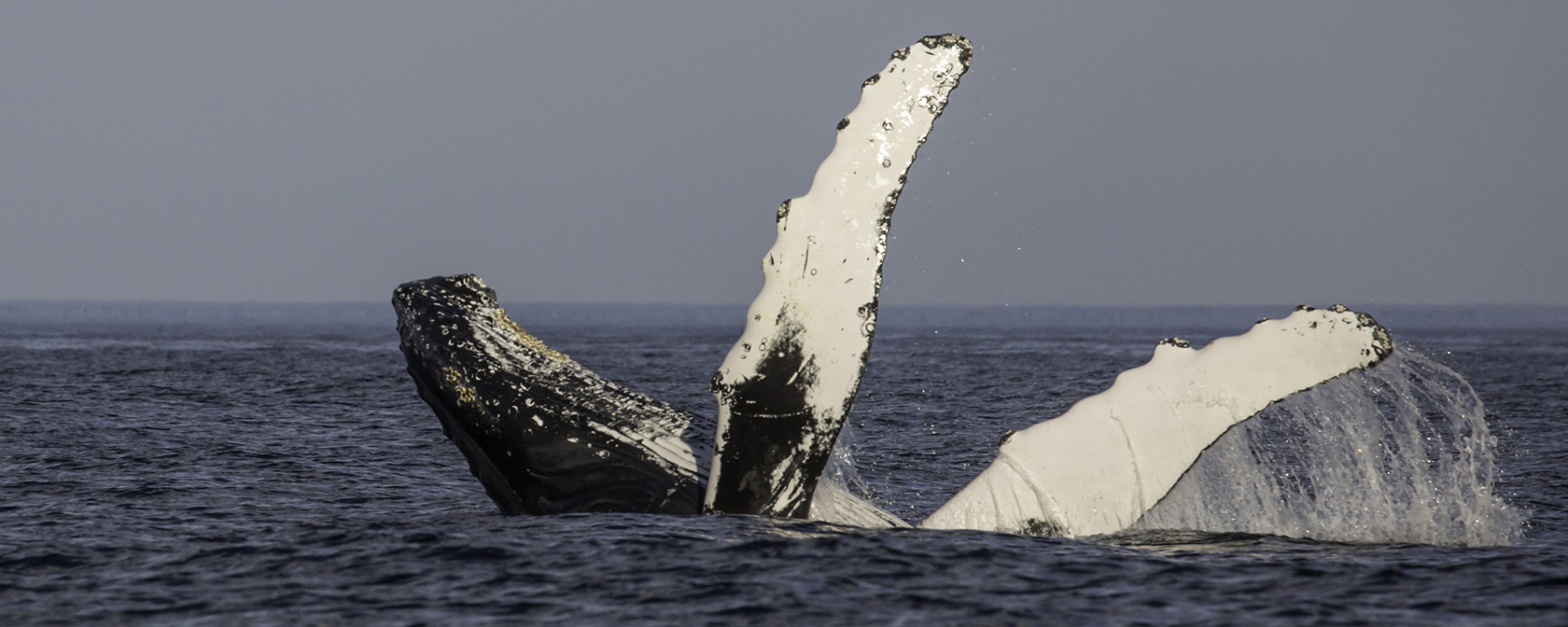By Sara Amundson and Kitty Block
The United States has finalized a rule to protect key ocean habitats used by endangered humpback whales as they migrate and feed in the waters off the U.S. west coast.
This is a tremendous development and one we hope will help speed the recovery of these iconic marine mammals who were once hunted to the brink of extinction for their oil and blubber. Two of the five “breeding stocks” of humpback whales in the world listed under the Endangered Species Act feed along the U.S. west coast where they are in danger of being struck by ships and face other potentially adverse impacts from commercial fisheries, including fatal entanglement in fishing gear. The designation of these areas as "critical habitat" for humpback whales will allow the government to limit activities that have the potential to degrade these crucial habitats.
This is a commonsense protection, but it has been a long time coming. For decades, even after whaling ceased, humpback whales have faced challenges to their survival, ranging from ship strikes to warming oceans and climate change. Until the 1980s, indiscriminate whaling led to populations of some humpback whales declining by nearly 95 percent globally, according to the National Marine Fisheries Service. Beginning in the 1970s, the Humane Society of the United States and other organizations waged a major fight to protect these animals both nationally and internationally. Our efforts led to humpback whales being protected under the Endangered Species Act, when that law passed in 1973. Eventually, we won an international moratorium on killing humpbacks in commercial whale hunts.
But in 2016, during a review of humpback whale populations, the NMFS divided them into 14 distinct “breeding stocks” and decided only five of these would remain protected under the ESA moving forward—a decision we did not feel sufficiently protected these animals.
The ESA requires the government to designate “critical habitat” for the five listed stocks, something the NMFS failed to do so for five years despite protests by the HSUS, Humane Society Legislative Fund and other organizations.
We are pleased that under the Biden administration, the NMFS has at last taken this important step, and we now urge it to do more to protect these animals by regulating potentially harmful activities in these vital areas.
Humpback whales are iconic animals who are an important part of a diverse ocean ecosystem. They are a source of joy for whale watchers worldwide. No one who has seen a humpback feeding at the surface in waters close to the shore, slapping their long flippers on the ocean surface and leaping completely out of the water in spectacular breaches is ever likely to forget the spectacle.
In 1970 Dr. Roger Payne, a renowned whale scientist, published a record album “Songs of the Humpback Whale,” introducing the world to the complex and beautiful “songs” of humpbacks in their mating grounds. At around the same time a shocked American public saw images in the media of dead humpback whales being dragged onto whaling ships. Today, decades later, this dichotomy continues: whales continue to be among our oceans' most beloved creatures, even as they face great challenges to their survival. It's high time these whales get the protections they deserve. Let's celebrate the progress made for humpback whales today, even as we continue to fight on their behalf.
Kitty Block is President and CEO of the Humane Society of the United States.




